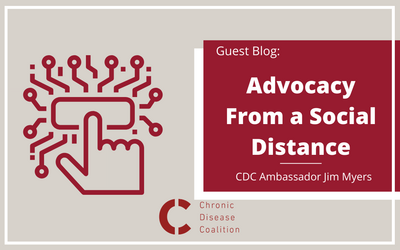
The role of social media
Social media is an effective way to contact your legislator. In fact, 96 percent of all Congress members have a Facebook page, 99 percent are on Twitter, 79 percent are on YouTube and 79 percent have an Instagram account. Additionally, 33 percent of all federal officials have accounts you can post to, compared to the 36.5 percent of state officials that allow posting to their accounts. These numbers suggest that social media is a great and effective way to build relationships with your members of Congress. Legislators use social media not only to get their messages out, but to gauge the pulse of their constituents. Almost 96 percent have an email or social media account, where not only can you contact them, but you can also request a written response on an issue.Why social media is effective in communicating with elected officials
Elected officials and their staff pay attention to social media communications from their constituents. In addition to email communications, elected officials rate social media communications as 76 percent effective in getting your point across.- 80 percent of congressional staffers say as little as 30 tweets puts the subject matter on their radar.
- Continuing comments can move and issue to the front. If you have a small group of advocates asking congress to act on something via social media, chances are they will listen!
- 35 percent say they become concerned about an issue with less than 10
- 45 percent say it is between 10-30
- 21 percent say it is greater than 30 comments.
Methods of remote communication
In addition to social media, there are several methods of very effective remote communication that will work with your elected officials:- Email: Most legislators have an email account you can write to and request a written response. This is a very common method of communicating with your elected official. However, it does not have the immediacy of meeting with the official in person and does not give you the opportunity to gauge the official or his staffer’s reactions to your presentation.
- Social media accounts: As we have seen above, most members have social media accounts, so you can contact them on Facebook, Twitter or Instagram. The problem is that again you do not have the ability to gauge their response to your arguments.
- Direct Messaging: Through Facebook, for example, you can have instant communications with your member/staffer, but you have limited ability to share/discuss documents and the lack of immediacy. You can do am IM phone call that can give you a visual, but for me, the service is unreliable and frustrating at times.
- Phone Conferencing: Some of your representatives/staffers may prefer a good, old-fashion phone conference. There are companies that offer apps you can download to provide such a service for your smartphone and comes with video conferencing. It does, however, limit the number of participants that you can add to a call.
- Video Conferencing: These apps can give you a very similar experience to a genuine in person meeting, and with some advanced planning, the ability to review and exchange documents. You have a much better opportunity to gauge reactions, and if necessary, adjust your presentation. Good video conferencing services include:
- Skype
- What’s App
- Houseparty
- Zoom
- Ring
- Google Hangouts Meet
- Facetime (Apple)
- Marco Polo
- Microsoft Teams
- Amazon Chime (AWS)
- Online Petitions: I have very successfully used Change.org to bring issues that I considered important to my fellow kidney patients to the officials’ attention. One petition was successful in obtaining over 200,000 signatures. You too can advocate and bring awareness online by creating petitions and interacting with legislators digitally.